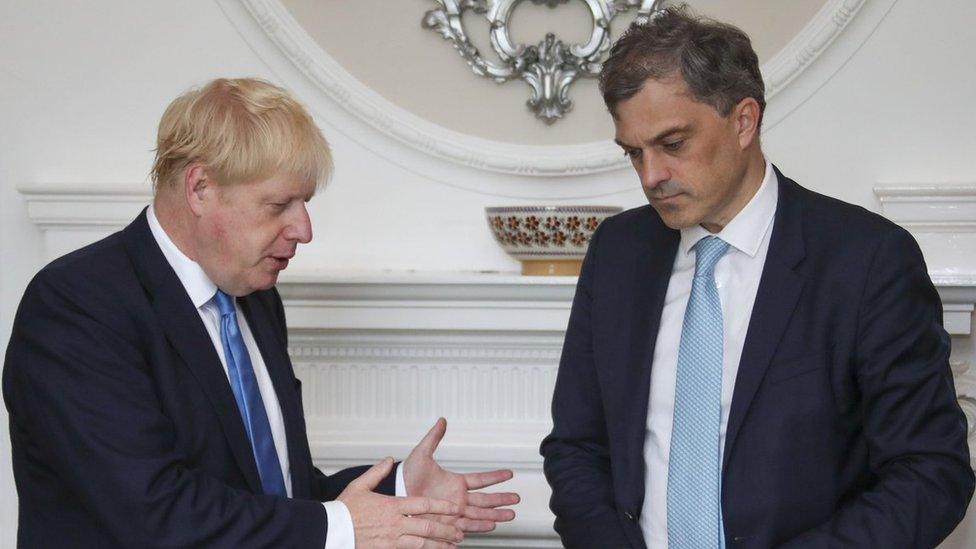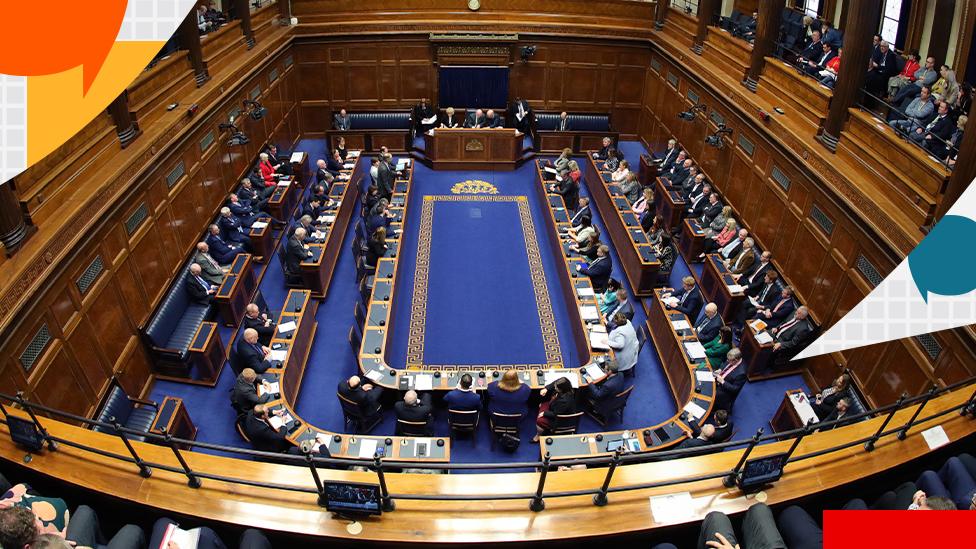Brexit: Inquiry to examine cross-border security co-operation
- Published

An inquiry has been launched to examine cross-border co-operation on policing, security and criminal justice between the UK and Ireland post-Brexit.
The NI Affairs Committee inquiry will examine the implications of Brexit for cross-border criminal activity.
It will also explore alternatives to existing EU agreements and identify barriers to co-operation from January 2021.
The announcement comes as the latest EU-UK trade negotiations begin.
When the Brexit transition period ends on 31 December, the UK will lose access to the EU agreements and processes that have underpinned cross-border cooperation for years.
Agreements, such as those allowing use of the European Arrest Warrant and access to EU data and information-sharing, meant criminals could be sought across jurisdictions and brought to justice.
'Challenges posed'
Chair of the Northern Ireland Affairs Committee Simon Hoare said an inquiry was "essential" to examine replacements to such agreements including the UK's access to services such as the European Criminal Records Information System.

Simon Hoare, chair of the NI Affairs Committee, said the inquiry will seek to 'identify challenges'
"No one wants to see an increase in cross-border criminal activity as a result of Brexit," said Mr Hoare.
"Allowing this to happen would harm the people of Northern Ireland, of the Republic of Ireland and of the whole of the UK.
"Cross-border co-operation on policing, security and criminal justice has heavily relied for years on agreements and arrangements made at the EU level."
He said the inquiry "will seek to identify the challenges posed by the potential loss of access to such arrangements".
Mr Hoare said "co-operation and communication" were key to bringing criminals to justice.
"Criminals must not be able to find refuge in intelligence and policing blackspots caused by jurisdictions no longer speaking to each other," he added.
- Published18 August 2020

- Published20 February 2020

- Published14 January 2020

- Published24 February 2020
